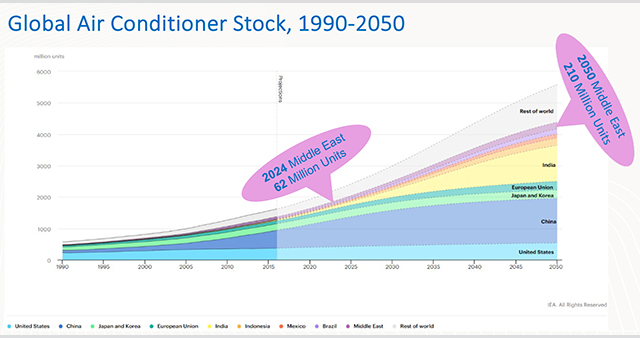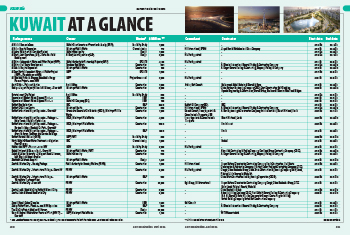
Major infrastructure and energy projects worldwide often suffer delays. Qatar is no exception, and government entities responsible for procuring 2022 Fifa World Cup-related infrastructure projects are, understandably, particularly keen to avoid them, given the 2022 deadline.
Contractors typically seek relief from the liquidated damages which flow from such delays, and to recover time-related (prolongation) costs through claims for an extension of time (EOT). Demonstrating entitlement to the time and costs claimed should be the contractor’s primary focus as it is the foundation upon which the claim is built.
Entitlement from variations
The most common event giving rise to delay on infrastructure or energy projects is change to the original scope of works. Where a change has not been formally instructed under the contract and causes the contractor to be delayed, the contractor must, as a minimum, explain:
i. What the original scope of works was;
ii. What was instructed (informally) by reference to a specific project record;
iii. That the instruction changed the original scope of works;
iv. That the contractual requirements as regards notifying the engineer or project manager of the intention to submit a claim for additional time/cost have been complied with; and
v. That the instructed change was performed.
The entitlement the contractor seeks as a result of a variation (whether instructed formally or informally) that delays the project, typically includes the direct costs associated with the change, the prolongation (time-related) costs arising out of the performance of the change and the time itself which is granted in the EOT provision.
Other entitlements
Where an event other than a variation arises which is caused by the employer and the contract is silent as to the contractor’s entitlement, grounds for compensation and relief from liquidated damages may be available under the Qatar Civil Code.
One example is Article 171 (2) which provides that where there has been a change in circumstances as a result of an event that was unforeseeable and exceptional in nature, which makes compliance with the contract onerous – though not impossible – the contractor is entitled to have the obligation reduced to a reasonable level. This is a mandatory provision, which is implied into all contracts and cannot be excluded.
Article 171 (2) may be applied in circumstances where the contractor is delayed by the employer but the EOT provision does not grant entitlement to additional time (that is, the typical ‘catch all’ wording, to the effect that the contractor is entitled to an extension for ‘any other delay or prevention caused by the employer’, is missing).
If the ‘catch all’ wording is missing and an event takes place for which the employer is responsible, the mechanism governing ‘time’ in the contract has effectively broken down. This leads to a situation which is known in common law jurisdictions as ‘time at large’, which means the contractual completion date and the consequences of it (liquidated damages) are inoperable.
In Qatar, where the principle of ‘time at large’ is unknown, Article 171 (2) may be relied upon to provide relief such that the completion date in the contract is adjusted to a more reasonable time.
Costs due to delay
It may also be the case that the contract does not expressly state that the contractor is entitled to costs, even if there is an entitlement to an extension of time. As such, contractors in Qatar, who establish an entitlement to time may need to rely on Article 697 of the Civil Code which states: “The employer shall pay the dues of the contractor upon taking over the work, unless otherwise required by agreement or by practice.”
Another approach is to argue that there has been a breach of contract which entitles the contractor to compensation under Articles 256 and 263 of the Civil Code. Subject to anything inconsistent in the contract, these provisions of the Civil Code may be relied upon to recover prolongation costs, if the corresponding entitlement to an extension of time is established.
Demonstrating delay
Most technical delay analysts will admit that demonstrating that an event or a series of events – which took place on a complex infrastructure or energy project – caused critical delay such that the original time for completion was not achievable is an art, not a science.
There are various different methodologies, which can be adopted to quantify the delay, some more robust than others.
Commonly in Qatar, the methodology adopted by contractors during the life of the project is to perform what is referred to as a ‘time impact analysis’ of the delay. This analysis method is expressly required in some Qatari public authority standard form contracts. Failure to identify the correct methodology can be fatal to the claim.In arbitration proceedings, often a tribunal will prefer to see the delay demonstrated using a time slice windows analysis which is retrospective.
Either of these methods requires various complete and consistent data sets, such as baseline programmes, updated programmes, minutes of meetings, letters, correspondence between the parties, dairies and so on. Without the available data, the outcome of the analysis is unlikely to reflect the actual delay; as the saying goes ‘rubbish in, rubbish out’. Therefore, the importance of record keeping in the context of recovering any entitlement, particularly an extension of time, cannot be overstated.
* Jonathan Collier is partner and head of Doha Office and Pamela McDonald is senior associate at Pinsent Masons LLP, Qatar Financial Centre Branch.





















_0001.jpg)


.jpg)
















.jpg)








.jpg)


